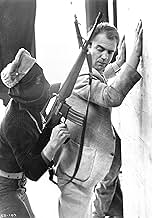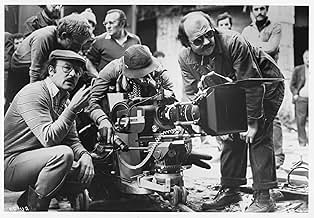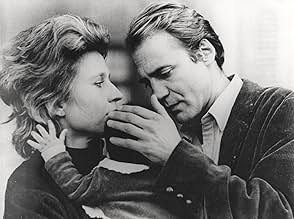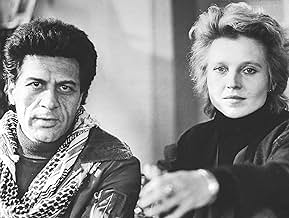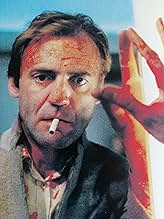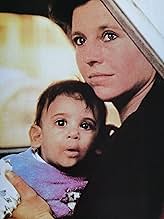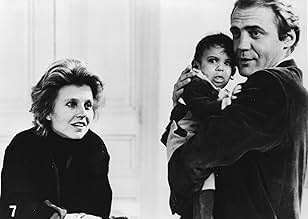Adicionar um enredo no seu idiomaA German journalist, escaping from broken marriage, goes to Lebanon to cover the civil war. Soon, he realizes that he can't handle the truth.A German journalist, escaping from broken marriage, goes to Lebanon to cover the civil war. Soon, he realizes that he can't handle the truth.A German journalist, escaping from broken marriage, goes to Lebanon to cover the civil war. Soon, he realizes that he can't handle the truth.
- Direção
- Roteiristas
- Artistas
- Prêmios
- 1 vitória e 5 indicações no total
- Berger
- (as Martin Urtel)
Avaliações em destaque
The film was shot on location in Beirut which guarantees a very authentic look to the damaged city. Many of the "action" scenes also look very effective and the sense of danger is well created, even though the main focus is given to psychological things like Laschen's attempts to grasp the situation, not thrilling bomb attacks and firefights. Sometimes the pacing feels a little slow, but the acting is good throughout. Especially the brooding Ganz and the pragmatic Skolimowski play well together, bringing life to their very different characters.
The most notable sentiment present in the film is the complete lack of optimism. The war is portrayed as completely inhumane and unheroic waste of life: the photographs and scenes depicting unspeakable mistreatment of civilians stay in the viewer's mind for a long time. The film doesn't offer a hopeful or positive message on either of its two levels, general or personal – no solution for either the war or Laschen's own anxiety seems possible. "Our only real chance to fight the violence is to not let it start in the first place" is the vibe I'm getting out of the film – an effective piece of cinema.
Anyway, it's a really good, really intense movie. The ethical questions surrounding reporting on war are probably some of the most important, and the movie does a fine job looking at them. I recommend it.
Você sabia?
- CuriosidadesThis film was part of a cycle of pictures made during the 1980s that featured journalists covering war. The movies include Salvador: O Martírio de um Povo (1986), Sob Fogo Cerrado (1983), Circle of Deceit [O Ocaso de um Povo (1981)], Deadline (1987), Um Grito de Liberdade (1987), Os Gritos do Silêncio (1984) and O Ano que Vivemos em Perigo (1982).
- Citações
Sister Brigitte: I must tell you, though, if you change your mind, we absolutely will not take him back.
Ariane Nassar: But he has been baptized!
Sister Brigitte: Yes, we have done everything necessary.
Georg Laschen: Then he's not a heathen.
Ariane Nassar: What sum had you considered?
Sister Brigitte: Whatever you choose to give. The convent really needs help.
Ariane Nassar: A thousand? Two thousand?
Sister Brigitte: Two thousand seems a lot.
Ariane Nassar: Not to me.
- Cenas durante ou pós-créditosOpening credits run in a single at the bottom of the screen, right to left in the style of a news ticker.
- ConexõesFeatured in Sneak Previews: Fantasia/The Kirlean Witness/Diva/Circle of Deceit (1982)
Principais escolhas
- How long is Circle of Deceit?Fornecido pela Alexa
Detalhes
- Tempo de duração
- 1 h 48 min(108 min)
- Mixagem de som
- Proporção
- 1.85 : 1

